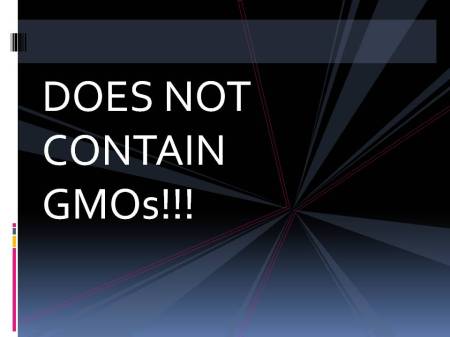 GMOS are in the news yet again. The controversies re their health and economic value abound, as does the ‘evidence’ for and against their production/cultivation and release on the market.
GMOS are in the news yet again. The controversies re their health and economic value abound, as does the ‘evidence’ for and against their production/cultivation and release on the market.
The World Health Organisation – WHO – defines genetically modified organisms (GMOs) as organisms in which the genetic material (DNA) has been altered in a way that does not occur naturally. In their 20 Questions on GM foods they specifically discuss the safety of GM foods. “Different GM organisms include different genes inserted in different ways. This means that individual GM foods and their safety should be assessed on a case-by-case basis and that it is not possible to make general statements on the safety of all GM foods. GM foods currently available on the international market have passed risk assessments and are not likely to present risks for human health.” Note the phrase – “not likely”.
Some argue that GMOS can solve World Hunger. Yet the FAO Director General, Jose Graziano da Silva, seems not to agree. In March 2013 he issued a warning saying that GMOs not needed to eradicate hunger. “Our position as FAO is not that we are against GMOs but we are saying we don’t need them now to eradicate hunger.” He expressed concern about the impact GMOs have on the environment. “We don’t know what will happen to areas of production and the crops.”
Due to an interview I was involved in recently (see here: http://www.sundaycircle.com/2013/07/crop-wars/), I have been talking about GMOs to a couple of people and they were all asking the same question: “So as a consumer what is the bottom line?”
As a health and consumer educator — a Home Economist — I would say that:
- We still do not have enough data on the potential risks to human health in the long-term from consumption of GMOS.
- We already have evidence on the impact on the environment and on social and economic aspects related to farmers. It is not always so positive.
- So we might want to be a bit cautious still… Some people might even decide already to avoid GMOs altogether for health and ethical reasons.
My Key Messages for (Maltese) Consumers
1. Read labels on packaged foods. If the food contains GMOs it will say so; not necessarily on the front of the package; but in the ingredients list. Some companies will voluntarily put a label that their food does not contain GMOs. This will typically be on a food which consumers might think could contain GMOs (e.g. soy products). This label is often somewhere quite visible.
2. Buy organic as much as possible. Any food which is certified organic cannot contain GMOs. Look for the official EU label. 
3. If you buy your chicken meat from a local source, ask the producer if the feed given contains GMOs.
The same goes for local eggs. Ask the producer if the layers are given feed containing GMOs.
It is more difficult to check re feed given to other local animals slaughtered for meat which we buy through the butcher or at supermarkets.
4. Avoid the ‘Big Four’ as they are often called. Most GM ingredients are products made from the ‘Big Four:’ corn, soybean, canola (also known as rape seed), and cottonseed, used in processed foods. Some of the most common GM Big Four ingredients in processed foods are listed below*. REMEMBER: It will be stated on the label if these GM ingredients are present :
Corn
Cornflour, cornmeal, corn oil, cornstarch, gluten and corn syrup
Sweeteners such as fructose, dextrose and glucose
Modified food starch
Soy
Soy flour, lecithin, protein, isolate and isoflavone
Vegetable oil and vegetable protein
Canola/Rapeseed oil
Canola/rapeseed oil, additives made from canola/rapeseed oil
Cottonseed
Cottonseed oil, additives made from cottonseed oil
5. For sweetened foods, check on the ingredients list for the type of sugar used. You might find GM beet sugar as one of the ingredients.
*May be derived from other non-GM sources
Sources:
http://www.who.int/foodsafety/publications/biotech/20questions/en/
![1280444_baby_style_images[1]](https://suzannempiscopo.files.wordpress.com/2010/10/1280444_baby_style_images1.jpg?w=450)